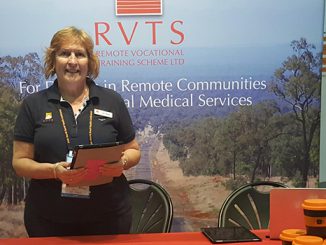
Imagine that you’re a GP registrar, and your supervisor has sat in on one of your consults, and now wants to give you feedback. Have you ever considered how open you are to feedback?
Apparently, as a group, health professionals are not very good at self-assessing our performance. But as registrars, we should always be anticipating feedback. We’re still in training: we’re expected to have gaps and learning needs. But unfortunately, we’re not always very good at receiving feedback. And that’s because feedback can sometimes be painful, and we become defensive. But, being defensive is not very helpful.
Dr Abhisek Ramroop, a former RVTS registrar, joins me to talk about feedback.
Feedback itself will not make you a better doctor. You need to self-reflect – critically self-assess. Review the facts. Recognize that perhaps there is an element of truth, and some room for improvement.
We need to remain “teachable” – open to suggestions, aware that we probably have blind spots and others may have useful input. As registrars, we need to recognise the value of feedback, and ensure that we’re open to receive feedback, and, for it to be useful, we need to respond by self-reflecting and considering how we can change our actions to incorporate what we’ve learned.
References:
- Algiraigri AH. Ten tips for receiving feedback effectively in clinical practice. Med Educ Online. 2014;19:25141. Published 2014 Jul 28. doi:10.3402/meo.v19.25141
- Bing-You RG, Trowbridge RL. Why Medical Educators May Be Failing at Feedback. JAMA.2009;302(12):1330–1331. doi:10.1001/jama.2009.1393
- Qureshi NS. Giving effective feedback in medical education. The Obstetrician & Gynaecologist 2017;19:243 – 8. DOI:10.1111/tog.12391




Leave a Reply